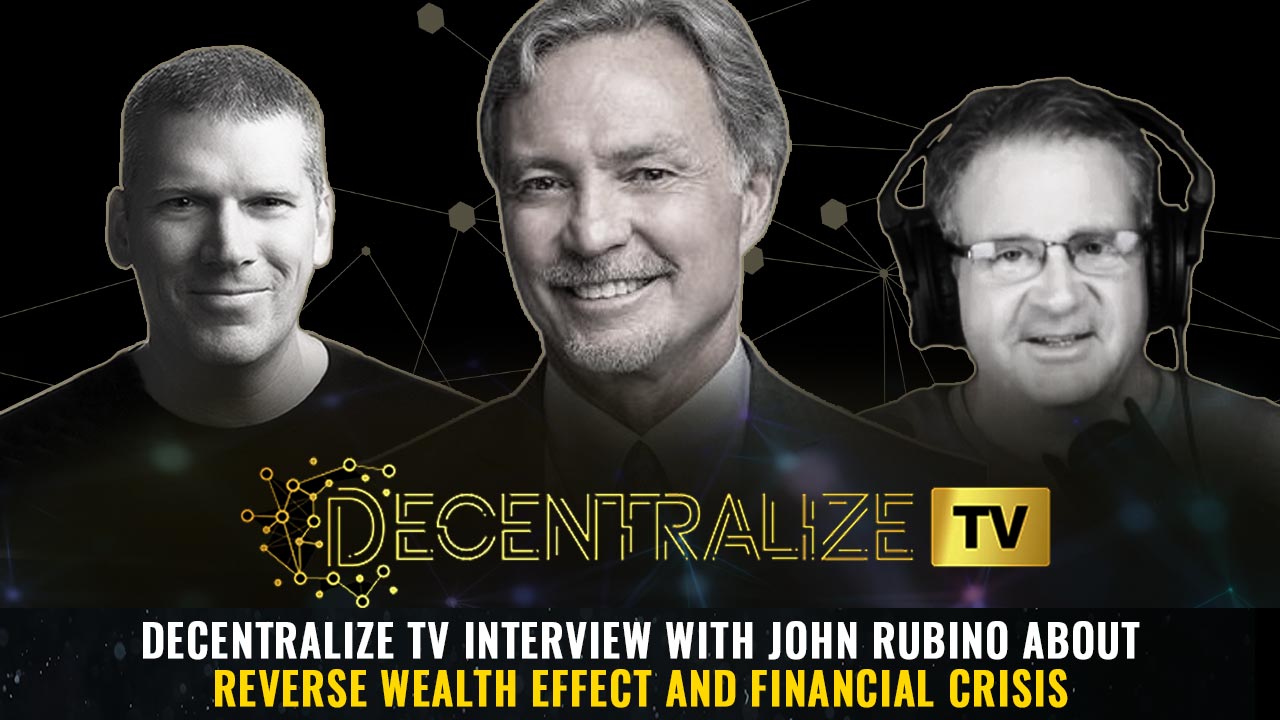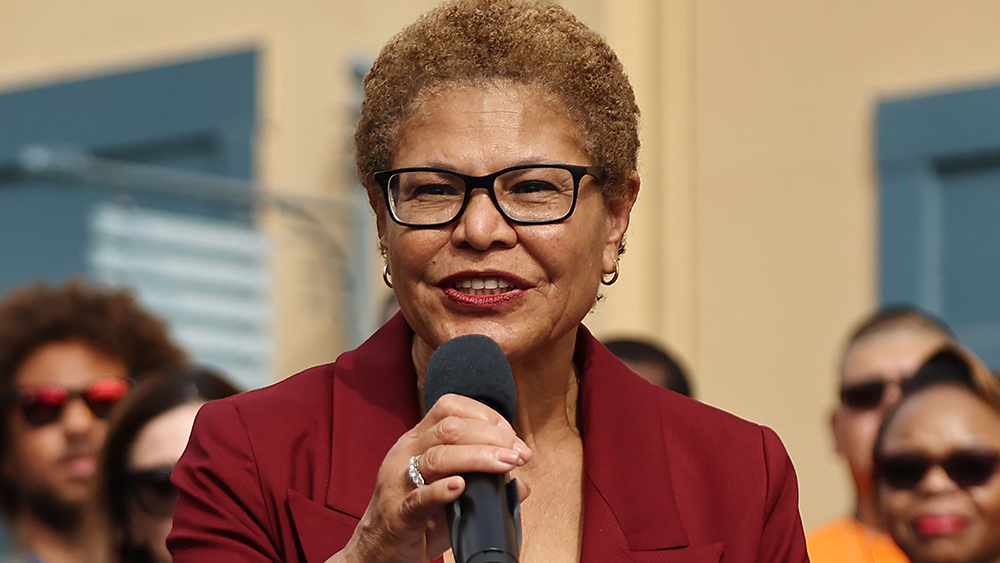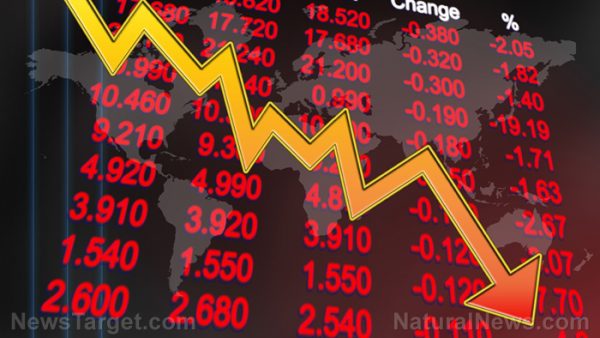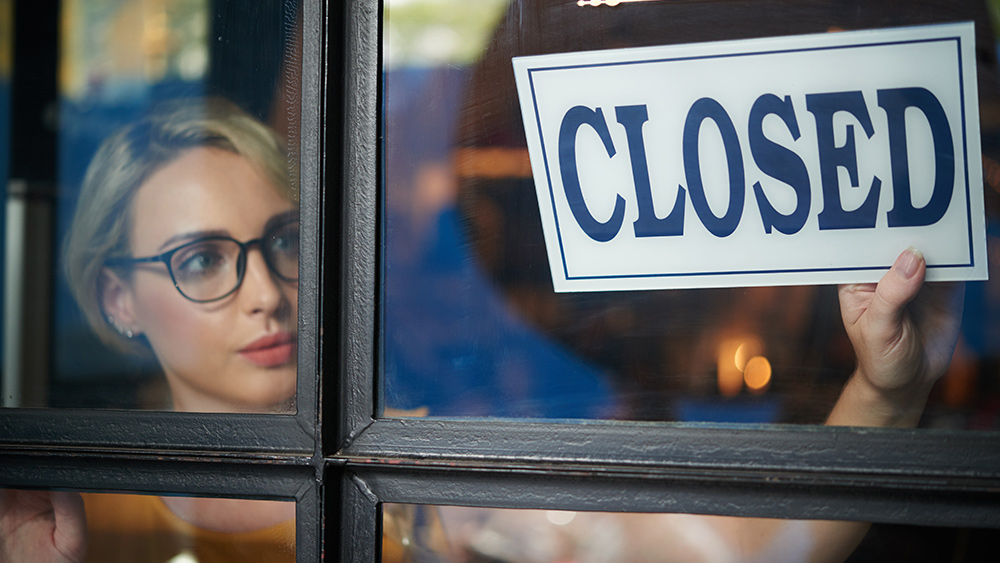Uninsurable homes and plummeting property values: John Rubino warns of a 'Reverse Wealth Effect' in exclusive interview with Mike Adams and Todd Pitner
- Homeowners in California and the Carolinas face uninsurable properties due to frequent natural disasters, leading to plummeting home values and a potential "reverse wealth effect."
- Insurers are exiting high-risk markets, leaving homeowners with unsellable properties as banks refuse mortgages for uninsurable homes, exacerbating financial instability.
- The state's "Fair Plan" insurer may face $437 billion in potential payouts, risking bankruptcy and shifting the burden to taxpayers amid widespread uninsurable homes.
- Declining property values reduce local tax revenues, strain public services, and drive up insurance premiums, while inflation further increases costs for insurers and homeowners.
- Experts recommend diversifying into physical assets like gold, silver, and real estate, alongside preparing for economic instability as traditional financial systems falter.
A growing insurance crisis is unfolding across high-risk areas in the United States, leaving homeowners in states like California and the Carolinas facing a dire financial reality. In an exclusive interview on Decentralize TV, financial analyst John Rubino joined hosts Mike Adams and Todd Pitner to discuss the alarming trend of uninsurable homes, plummeting property values, and the potential for a "reverse wealth effect" that could ripple through the economy.
The crisis stems from the increasing frequency and severity of natural disasters—wildfires in California and hurricanes in the Carolinas—which have overwhelmed insurance companies. As Rubino explained, "Insurance companies are pulling out of these markets because they can't turn a profit insuring multi-million dollar houses in Hurricane Alley or Southern California." This exodus has left homeowners with rebuilt but unsellable properties, as banks refuse to issue mortgages for uninsurable homes.
The situation is particularly dire in California, where the state's "Fair Plan," an insurer of last resort, may be on the hook for up to $437 billion in potential payouts, according to Bloomberg analysis. Rubino warned that this could bankrupt the state, shifting the financial burden to taxpayers. "When you've got 100,000 people with uninsurable and unsellable houses, you get a thing called the reverse wealth effect," he said.
The reverse wealth effect occurs when declining asset values, such as plummeting home prices, lead to reduced consumer spending and economic contraction. Rubino compared the current crisis to the 2008 housing collapse, where overextended banks and unaffordable mortgages triggered a financial meltdown. "If a house can't be insured, it's not worth nearly the prices that have prevailed for the last decade," he said. "Prices have to plunge—maybe 20%, 30%, or 40%—to clear the market."
The implications extend beyond individual homeowners. As property values decline, local governments face reduced tax revenues, further straining public services. Meanwhile, insurance premiums for those who can still obtain coverage are skyrocketing, adding to the financial burden.
Rubino also highlighted the role of inflation in exacerbating the crisis. "We've been debasing the dollar for the past 50 years, and one of the effects is that it makes property more expensive," he explained. "When houses go up in value, insurance companies have a bigger bill to pay off when that house burns down. Inflation is part of the process of making these houses uninsurable."
The hosts and Rubino also explored potential solutions, including the need for decentralized financial strategies. Adams emphasized the importance of owning physical assets like gold and silver, which retain value during economic turmoil. "Gold and silver survive hurricanes, floods, fires—it's on the table of elements," Adams said. "There's nothing more secure in the universe."
Rubino echoed this sentiment, recommending that individuals allocate at least 10% of their financial assets to precious metals. He also suggested investing in real assets like rental properties, energy infrastructure, and commodities like copper, which are essential for the electrification of the global economy.
The conversation took a speculative turn as Pitner raised the possibility of conspiracy theories, including weather weaponization and government manipulation of financial systems. While Rubino acknowledged the plausibility of such scenarios, he emphasized the importance of focusing on tangible risks and preparing for economic instability.
As the interview concluded, Rubino left viewers with a sobering reminder: "The crash that results from this is going to be a lot bigger than we've ever seen. We've bought ourselves extra time, but at the cost of an even bigger crash when the time comes."
For homeowners in high-risk areas, the message is clear: prepare for a future where traditional financial systems may no longer provide security. Whether through decentralized assets, alternative investments, or self-sufficiency, the time to act is now—before the next disaster strikes.
Watch this full episode of "Decentralize TV" with Mike Adams and Todd Pitner as they interview John Rubino about
the reverse wealth effect and financial crisis.
This video is from the
DecentralizeTV channel on Brighteon.com.
More related stories:
California wildfires push home insurance to the brink: Will homes remain insurable?
Los Angeles wildfires leave displaced residents vulnerable to predatory PRICE GOUGING
Federal Reserve, BlackRock retreat from climate coalitions as economic realities take precedence
Sources include:
Brighteon.com
Rubino.substack.com
 Parler
Parler Gab
Gab










